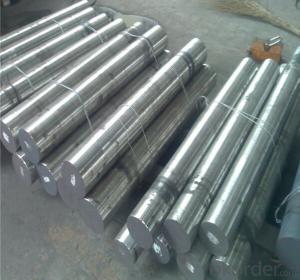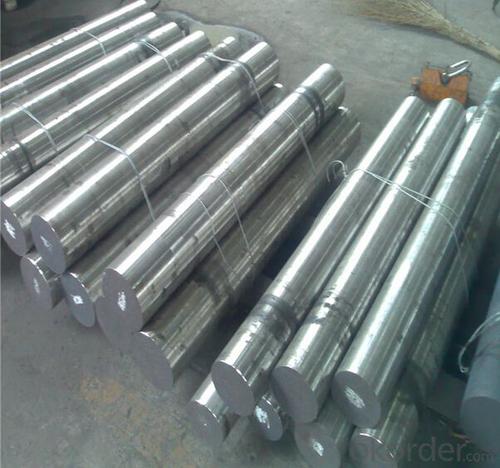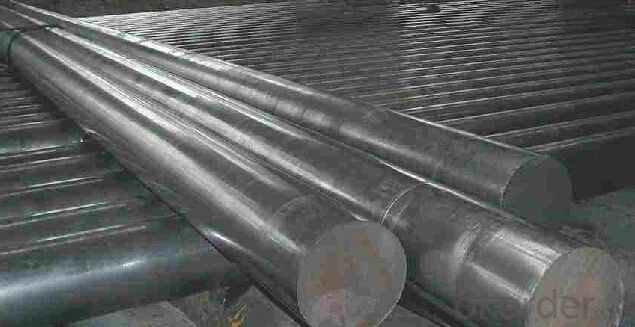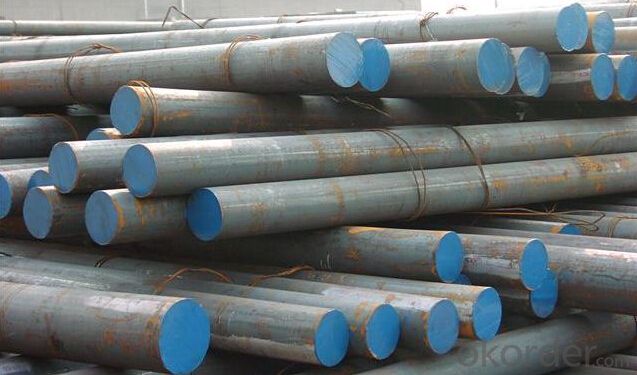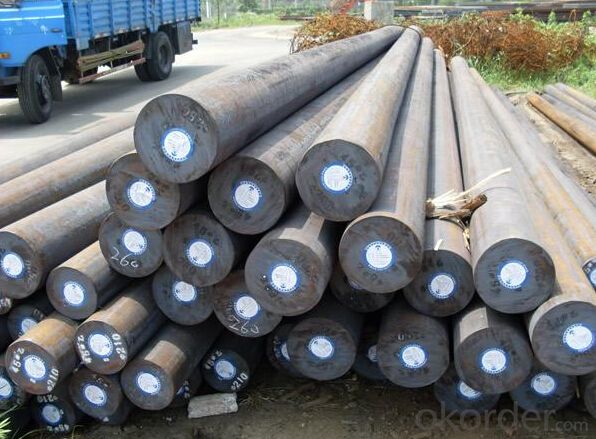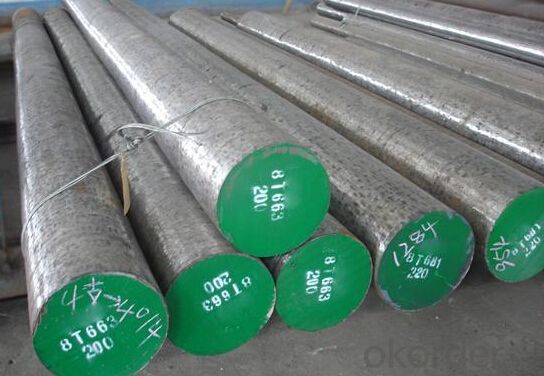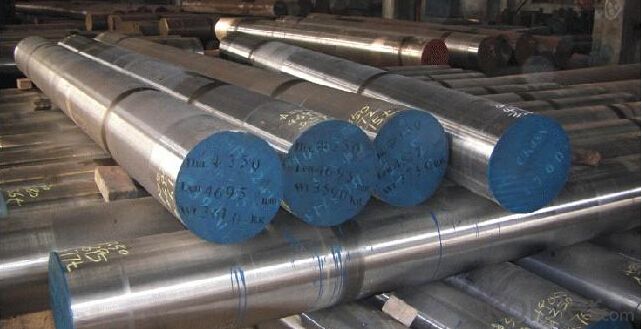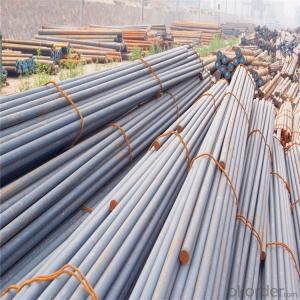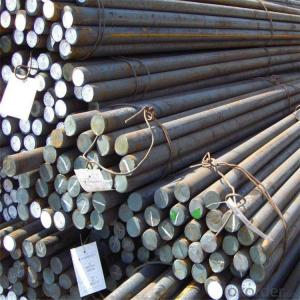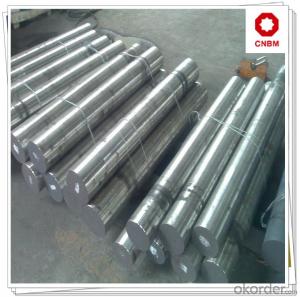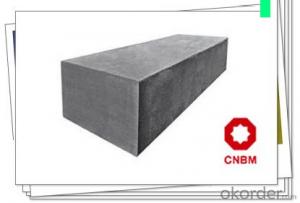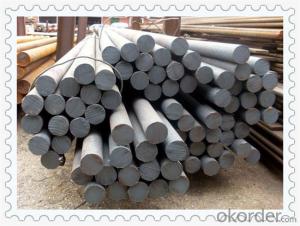AISI1020 SAE1020 round steel bars/SAE 1020 carbon structural steel
- Loading Port:
- Tianjin
- Payment Terms:
- TT OR LC
- Min Order Qty:
- 3 m.t.
- Supply Capability:
- 10000 m.t./month
OKorder Service Pledge
OKorder Financial Service
You Might Also Like
Specification
SAE1020 round steel bars/SAE 1020 carbon structural steel
Name | SAE1020 Carbon Steel Round Bar |
Shape | Round Bar/Square Bar/Flat Bar/Plate/Wire |
Standard | GB/ASTM/SAE/AISI/DIN/JIS/EN/BS |
Surface Treatment: | Black/Peeling/Polished/Machined |
Delivery Condition: | Hot Rolled or Forged/Peeled or Black Surface |
Test | SGS/UT 100% Elements Testing |
Certificate: | ISO/Mill Certificate |
Service: | 24 hours online service / |
more than 20 years trading and manufacture | |
Quality Assurance: | the third party inspection, such as SGS, BV, TUV…etc. is acceptable |
Packaging Details: | seaworthy packaging or as per customer's packing instruction |
Specification
Grade | SAE1020 AISI1020 ASTM1020 S20C S20CB C20 CK22 S22C |
Processing | EAF+LF+(VD) |
Commodity | steel round bar/round steel bar/round bar steel |
Technique | hot rolled |
Diameter | 10-310mm |
Length | can be required to 3-12m |
Sizes tolerance | length: +/-100mm,straightless:3mm/m |
Application | 1) General service industries (petroleum, food, chemical, paper, fertilizer, Fabric, aviation and nuclear) |
2) Fluid, gas and oil transport | |
3) Pressure and heat transmission | |
4) Construction and ornament | |
5) Boiler heat exchangers | |
Chemical Composition | C:0.17-0.23,Si:0.17-0.37,Mn:0.35-0.65, |
Machanical Properties | Tensile Strength(Mpa):410,Yield Strength(Mpa):245,Elongation:16,Shrinkage:55,elongation:25 |
Quality Condition | 1): Straightness: 3mm/m (max) |
2): Corner Radius: 3(max) | |
3): The ends will be end cut or gas cut | |
4): No cracks on the surface | |
Packing | 1): Paint oil on the surface to protect steel bars from rusting. |
2): Bundle packing by Iron Strips. | |
3): Bundle weight is from 2mt to 3 mt. | |
4): Two or three tags will be attached on each bundle. | |
MOQ | 5 tons for each sizes |
Packaging & Delivery
Packaging Detail | Sea worthy packing /as per customer's packing instruction |
Delivery Detail | 15 ~ 40 days after receiving the deposit |
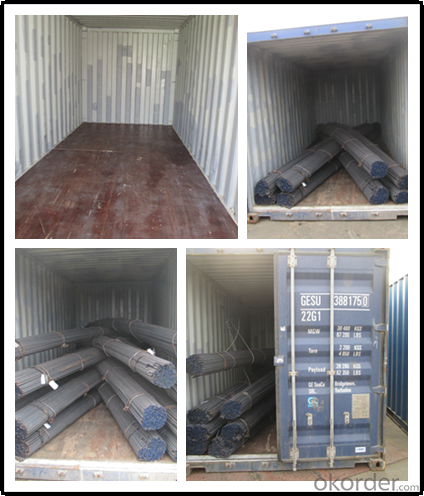
Product Show
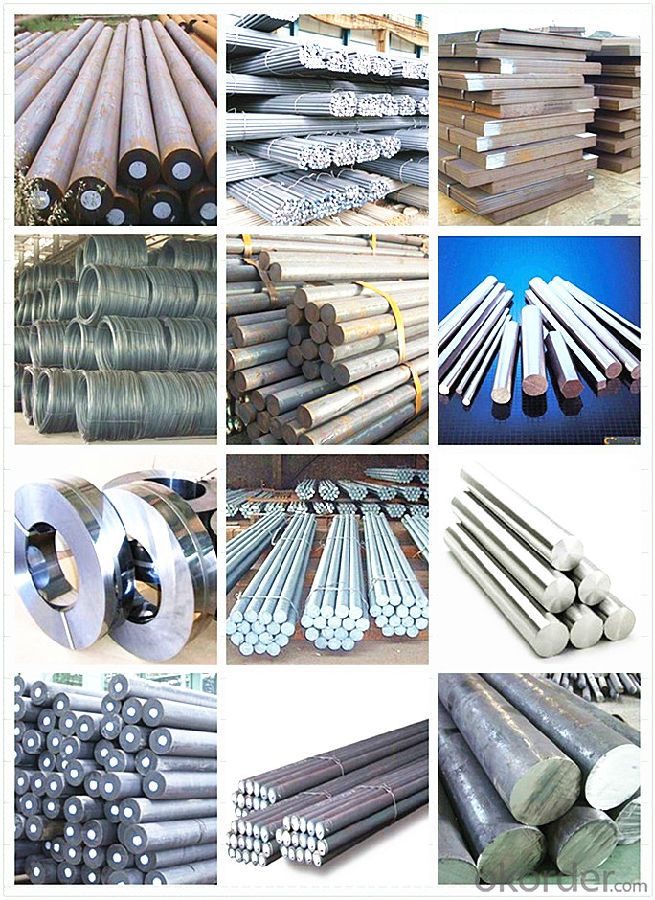
Workshop
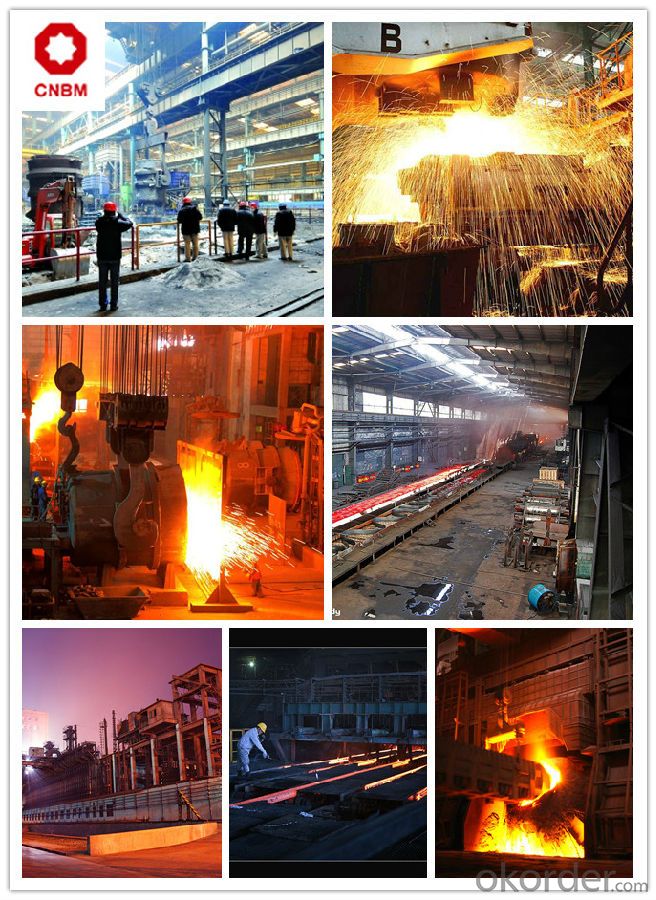
FAQ
Are you a trading company or manufacturer? | Manufacturer |
What’s the MOQ? | 3 metric ton |
What’s your delivery time? | 15-35 days after downpayment received |
Do you Accept OEM service? | Yes |
what’s your delivery terms? | FOB/CFR/CIF |
What's the Payment Terms? | 30% as deposit,70% before shipment by T/T |
Western Union acceptable for small amount. | |
L/C acceptable for large amount. | |
Scrow ,Paybal,Alipay are also ok | |
Why choose us? | Chose happens because of quality, then price, We can give you both. |
Additionally, we can also offer professional products inquiry, products knowledge train (for agents), smooth goods delivery, excellent customer solution proposals. | |
What's your available port of Shipment? | Main Port, China |
What’s your featured services? | Our service formula: good quality+ good price+ good service=customer's trust |
Where are your Market? | Covering more than 160 countries in the world |
- Q: What are the specific requirements for special steel used in the mining industry?
- Special steel used in the mining industry has specific requirements to ensure its durability, strength, and resistance to harsh conditions. Some of the key requirements for special steel used in the mining industry include: 1. High strength: Special steel used in the mining industry must have high tensile strength to withstand heavy loads and resist deformation under extreme conditions. This enables the steel to endure the pressure, impact, and stress that it may encounter during mining operations. 2. Wear resistance: Mining environments involve abrasive materials, such as rocks and ores, which can cause significant wear on equipment. Special steel used in the mining industry needs to have excellent wear resistance to prevent premature failure and increase the lifespan of mining equipment. 3. Corrosion resistance: Mining operations often take place in highly corrosive environments, such as underground mines or near water bodies. Special steel used in the mining industry should possess high corrosion resistance to withstand exposure to chemicals, moisture, and other corrosive agents. This helps prevent rusting, pitting, and other forms of corrosion that can weaken the steel. 4. Toughness: Mining equipment is subjected to heavy impacts and vibrations, which can lead to fractures if the steel is not tough enough. Special steel used in the mining industry should exhibit excellent toughness, allowing it to absorb energy from impacts and vibrations without fracturing. This ensures the safety and reliability of mining equipment. 5. Heat resistance: Mining operations involve high-temperature environments, such as smelting and refining processes. Special steel used in the mining industry must have good heat resistance to withstand the elevated temperatures without losing its strength or undergoing deformation. 6. Machinability: Special steel used in the mining industry should also have good machinability, allowing it to be easily formed into complex shapes or structures. This facilitates the manufacturing process of mining equipment and components. Overall, the specific requirements for special steel used in the mining industry revolve around strength, wear resistance, corrosion resistance, toughness, heat resistance, and machinability. Meeting these requirements is crucial for ensuring the reliability, durability, and safety of mining equipment in the demanding mining environments.
- Q: Can special steel be used in the manufacturing of household appliances?
- Yes, special steel can be used in the manufacturing of household appliances. Special steel offers enhanced strength, durability, and corrosion resistance, making it suitable for applications such as refrigerator compressors, oven heating elements, and washing machine drums.
- Q: How are nickel-based alloys used in the aerospace industry?
- Nickel-based alloys are extensively used in the aerospace industry due to their superior strength, high temperature resistance, and excellent corrosion resistance properties. These alloys are commonly employed in the construction of aircraft engines, turbine blades, and exhaust systems. They help improve engine efficiency, enhance fuel economy, and ensure safe and reliable operations in extreme conditions, making them crucial for the advancement of aerospace technology.
- Q: How is special steel used in the construction manufacturing process?
- Special steel is used in the construction manufacturing process for its unique properties such as high strength, durability, and resistance to corrosion. It is commonly used to fabricate structural components, reinforcement bars, and other critical elements in buildings, bridges, and infrastructure projects. Additionally, special steel alloys are utilized in the production of specialized tools and machinery used in the construction industry.
- Q: How does special steel contribute to the aerospace industry?
- Special steel contributes to the aerospace industry by providing excellent strength, durability, and high-temperature resistance. It is crucial in manufacturing aircraft components such as engine parts, landing gear, and structural elements. Special steel's unique properties enable lighter and more fuel-efficient aircraft, enhancing performance and reducing maintenance costs. Additionally, its corrosion resistance ensures the longevity and safety of aerospace structures, making it an essential material in the industry.
- Q: Can special steel be used for making electronics components?
- Yes, special steel can be used for making electronics components. Special steel, such as stainless steel, can provide excellent corrosion resistance, durability, and electrical conductivity, making it suitable for various applications in electronics manufacturing.
- Q: What are the different methods for joining special steel components?
- There exist various techniques for connecting special steel components, each having its own merits and limitations. Some commonly utilized methods are as follows: 1. Welding: This approach is extensively employed for joining steel components. It entails melting the edges of the components and merging them together. Welding can be executed using diverse techniques, including arc welding, gas welding, or laser welding, depending on the project's specific demands. 2. Bolting: Bolting necessitates the utilization of bolts, nuts, and washers to connect steel components. This method is favored for applications where disassembly or maintenance may be required. It offers a robust and dependable connection, although it may not be suitable for high-stress situations. 3. Riveting: Riveting involves the employment of metal fasteners known as rivets to connect steel components. This method is commonly employed in applications requiring high strength and resistance to vibration. Riveting is a permanent joining technique that delivers a sturdy and long-lasting connection. 4. Adhesive bonding: Adhesive bonding involves utilizing high-strength adhesives to connect steel components. This method is preferred when aesthetics and weight reduction are important. Adhesive bonding can yield a strong and durable connection, although surface preparation and adhesive selection are crucial for ensuring the bond's strength. 5. Mechanical fastening: Mechanical fastening techniques, such as using screws or clips, can also be employed to connect special steel components. This method is often used for temporary connections or components that necessitate easy assembly and disassembly. Each joining method possesses its own advantages and considerations, and the selection of a method depends on factors such as the specific application, load requirements, expected lifespan, cost considerations, and the nature of the steel components being connected. It is essential to thoroughly assess these factors and consult experts to determine the most suitable joining method for a given project.
- Q: What are the requirements for special steel used in power generation equipment manufacturing?
- The requirements for special steel used in power generation equipment manufacturing are quite stringent. First and foremost, this type of steel must possess high strength and durability to withstand the extreme operating conditions and loads experienced in power generation equipment. This includes withstanding high temperatures, pressure, and mechanical stress. Additionally, special steel used in power generation equipment must exhibit excellent resistance to corrosion and oxidation. As power generation equipment often operates in harsh environments, such as high humidity or exposure to corrosive substances, the steel must have a high level of resistance to ensure its longevity and performance. Furthermore, the steel used in power generation equipment must have good weldability and formability. This is crucial for the manufacturing process, as complex shapes and structures are often required in power generation equipment, and the ability to weld and form the steel accurately is essential. Another important requirement for special steel in power generation equipment is its ability to maintain its mechanical properties at elevated temperatures. Power generation equipment, such as boilers or turbines, operates at high temperatures, and the steel used must retain its strength, creep resistance, and dimensional stability under these conditions. Lastly, special steel for power generation equipment must conform to industry standards and specifications. These standards ensure the quality, reliability, and safety of the steel used in power generation equipment manufacturing. Compliance with these standards is crucial to ensure the performance and longevity of the equipment. Overall, the requirements for special steel used in power generation equipment manufacturing are demanding, encompassing high strength, durability, resistance to corrosion and oxidation, good weldability and formability, heat resistance, and compliance with industry standards. Meeting these requirements is vital to ensure the efficient and reliable operation of power generation equipment.
- Q: How does the cost of special steel compare to regular steel?
- Compared to regular steel, special steel generally has a higher cost. Special steel is designed and produced specifically to possess exceptional properties and characteristics that regular steel lacks. It goes through additional processes, such as alloying, heat treatment, or specialized manufacturing techniques, to enhance its strength, durability, corrosion resistance, and other desirable features. These additional production steps contribute to the overall increased cost of special steel. On the contrary, regular steel is more easily obtainable and produced on a larger scale. It is commonly used for general purposes and applications where high-performance qualities are not necessary. Regular steel is relatively cheaper due to its lower production costs and wider availability in the market. However, it is important to consider that the cost comparison between special steel and regular steel can vary based on several factors, including the specific type of steel, the quantity being purchased, market conditions, and any additional customization required. Therefore, it is advisable to consult steel suppliers or specialists for accurate pricing information tailored to specific requirements.
- Q: How is special steel used in the aerospace supply chain?
- Special steel is used in the aerospace supply chain for various critical applications. It is used to manufacture components such as turbine blades, engine parts, landing gears, and structural components of aircraft. Special steel offers excellent strength, durability, and resistance to high temperatures, making it suitable for withstanding the extreme conditions faced by aerospace equipment. Its use in the aerospace supply chain helps ensure the reliability, performance, and safety of aircraft.
Send your message to us
AISI1020 SAE1020 round steel bars/SAE 1020 carbon structural steel
- Loading Port:
- Tianjin
- Payment Terms:
- TT OR LC
- Min Order Qty:
- 3 m.t.
- Supply Capability:
- 10000 m.t./month
OKorder Service Pledge
OKorder Financial Service
Similar products
Hot products
Hot Searches
Related keywords
